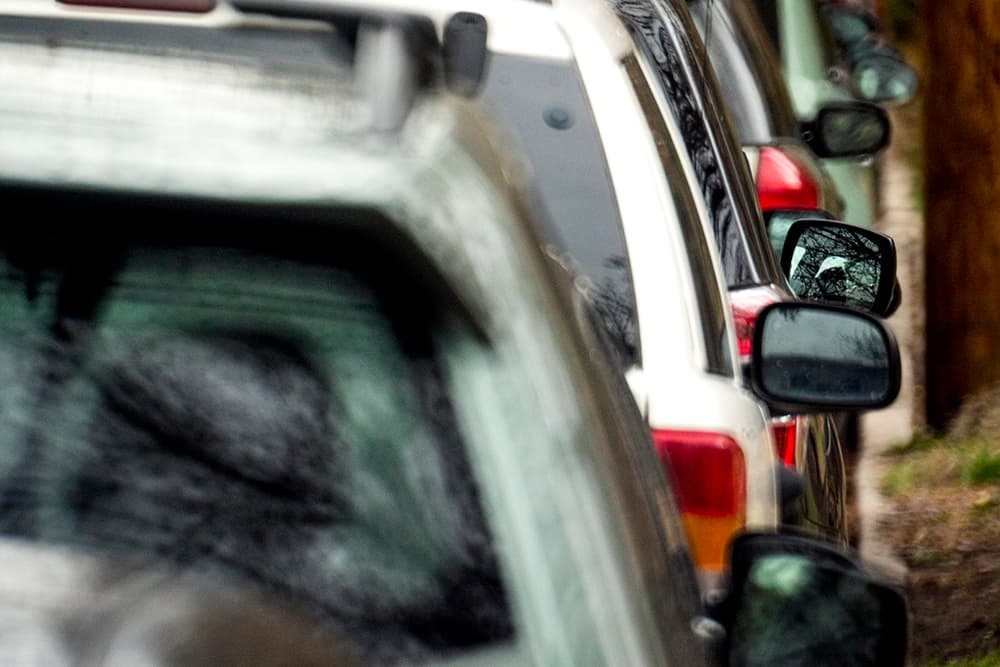
The Denver City Council voted 9-2 on Monday to require more parking for small lots in mixed-use zones.
This marks the end of a 10-month saga that started in August when the Denver City Council enacted a moratorium on a land-use provision that allowed developers to skip the parking when they were building on lots smaller than 6,250 square feet. It hadn't been used much at all, but neighborhoods where street parking was already tight got concerned when several developers started larger projects with no parking on site.
This issue affects less than 1 percent of the city's land area and fewer than 3,300 parcels, and it's not going to solve street parking problems or housing affordability by itself. But it has been debated as if the fate of the city hangs in the balance.
Neighborhoods that are seeing a lot of development feel like they're losing their quality of life while developers profit, and advocates for affordable housing and a more urban, transit-focused Denver see space that goes to parking as both a subsidy for cars and space that is not available for housing. It inherently drives up the price of housing to require parking on site.
The ordinance before council was amended by Councilman Jolon Clark to add even more parking than the ordinance originally proposed by Council President Albus Brooks. It will require parking after the first two stories for projects close to transit and after the first story further out. Both proposals maintain the full exemption for existing buildings, even if they are being redeveloped for a new use.
"I think this decision puts us on the wrong side of history," said Councilwoman Mary Beth Susman. "... We want a walkable, bikeable, transit-rich city. Neighbors are concerned about congestion. The top three issues in my district are traffic, traffic, traffic. ... We have to stop subsidizing car use with low gas taxes, roads designed primarily for cars and the other thing is parking requirements. It's a huge subsidy for car owners."
City planning staff did not support the change because it goes against city policies about not adding more parking. That stance led several council members who supported the bill to ask pointed questions about the adequacy of existing policies to mitigate the impact of development and about the politics of planning staff supporting Brooks' proposal, which also added parking, just not as much.
Susman and Brooks provided the only no votes. Councilwoman At-large Robin Kniech and Councilman Chris Herndon were absent.
People weren't necessarily satisfied with the ordinance, which doesn't make distinctions between different types of neighborhoods and different types of transit access.
"I think we've made some fairly mediocre sausage," Councilman Paul Kashmann said before the vote.
"There is nobody in the room who is like 'Yay! This bill!' which feels like a pretty good place for compromise," Clark said.
Clark urged the city to get to work on transportation demand management policies, which would require developers to take concrete steps to make it easier for future residents to not drive. Another amendment he added to the bill commits the city to creating such a policy, with the details to come.
It's the lack of adequate transit in Denver that tipped many council members to vote for more parking.
Councilman Paul Lopez described the west side, which he represents, as disconnected and under-served. He thought about participating in a challenge to use transit every day for a week and decided that he just couldn't do it.
"I have a daughter to pick up after school. I have a mother to go make dinner for. She lives outside of Denver. I have to do that every day," he said.
Many speakers described all the millennials they know who still own cars, despite the idea that we're moving to a future with fewer cars.
For your urbanist policy wonks, this is exasperating.
And a few of these millennials did show up at the meeting to say that building more housing is more important than preserving street parking.
"I sold my car when I moved to Denver," James Davis said. "I'm a millennial. I'm that person developers point to. We exist."
Joel Noble, who is the chair of the Planning Board but was speaking for himself, said the council's actions could have unintended consequences that undermine the goals City Council purports to support.
The concern the Planning Board hears the most is about loss of neighborhood character. Developers could respond in three undesirable ways to the new ordinance, he said. Many small lots can't accommodate more than five parking spaces without going to much more expensive structured parking. So instead, they might not develop at all, they might buy two lots and level one for parking, creating gaps in the street front, or they might accumulate multiple lots and build larger projects.
Any of those choices would chip away at neighborhood character, he said.













